Egypt’s Olympic volleyball team sparked debate by competing fully clothed in Paris Olympics, challenging France’s hijab ban and promoting inclusivity.
Egypt’s Olympic volleyball team, featuring duo Doaa Elghobashy and Nada Meawad, made headlines in Paris by competing fully clothed.
This choice of attire was not just a personal or cultural preference but also a powerful statement against the recent hijab ban imposed on French athletes.
The duo, Marwa Abdelhady and Doaa Elghobashy showed strength as they played against their Spanish opponents, who wore bikinis.
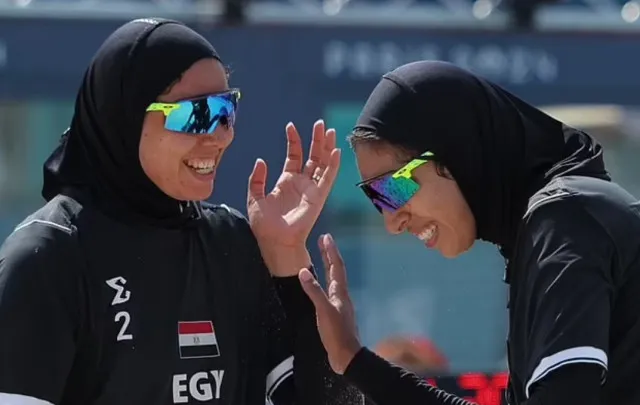
Egyptian athletes Marwa Abdelhady and Doaa Elghobashy competed in long-sleeved tops, leggings, and hijabs against Spain’s bikini-clad Liliana Fernandez Steiner and Paula Soria Gutierrez.
The viral images captured the stark difference in their competition attire.
What did Egypt’s Olympic volleyball duo state to protect their traditional outfit?
After Egypt lost 2-0, Abdelhady and Elghobashy embraced in their modest outfits while the Spanish duo celebrated in red bikinis.
This event unfolded in the context of France’s ban on hijabs for its athletes, citing principles of secularism.
However, Abdelhady and Elghobashy still wore their hijabs on the volleyball court and later spoke out against the ban.
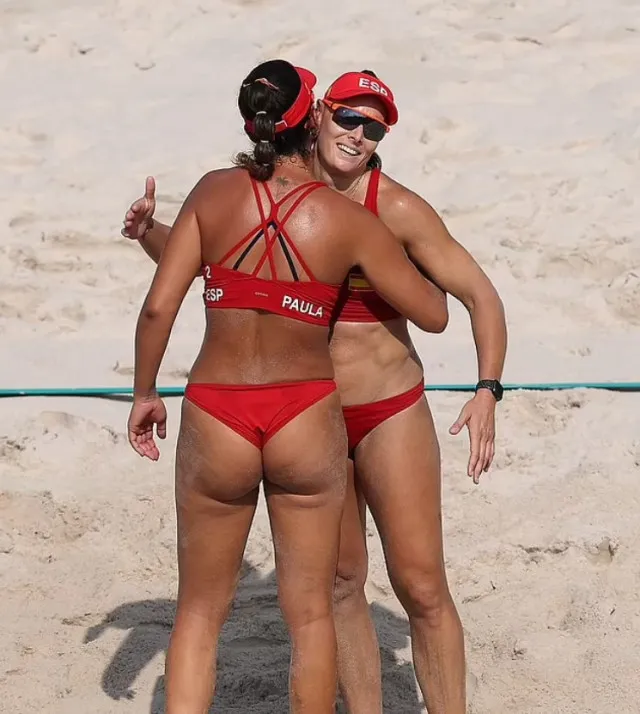
‘I want to play in my hijab, she wants to play in a bikini – everything is okay if you want to be naked or wear a hijab. Just respect all different cultures and religions,’ Elghobashy told Expressen said.
‘I don’t tell you to wear a hijab and you don’t tell me to wear a bikini. No one can tell me how to dress.
‘It’s a free country, everyone should be allowed to do what they want,’ she concluded.
Elghobashy and Meawad openly condemned the ban, stating that it unfairly targets Muslim athletes and restricts their right to express their faith.
They argued that sports should be an inclusive space for everyone.
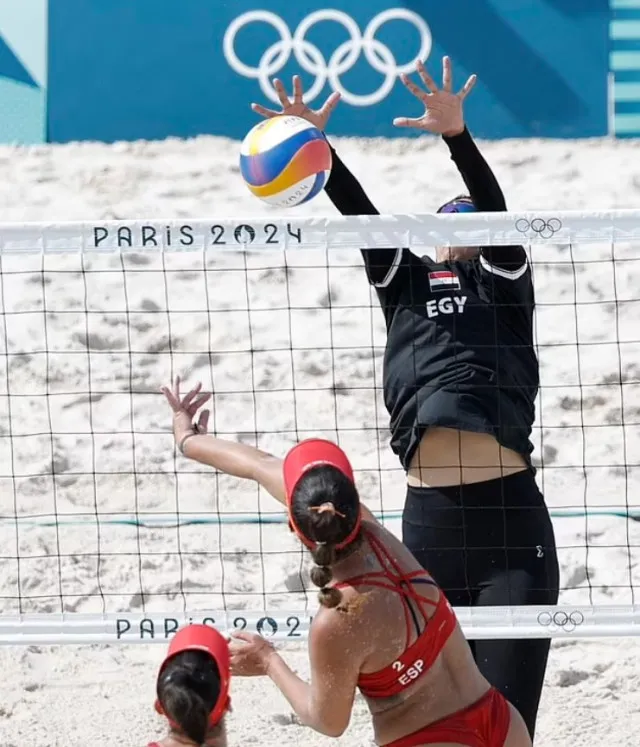
No one should face discrimination or pressure to follow specific dress codes based on their religious or cultural background.
Elghobashy emphasized that the hijab is an important part of her identity.
People should see it as a symbol of personal expression.
‘I love playing in a hijab, not with a bikini,’
‘For another girl, you might not like [it] – it’s OK for you. It’s freedom, I felt comfortable and good.
‘The hijab is a part of me. It’s not [that way] for everyone,’ she concluded.
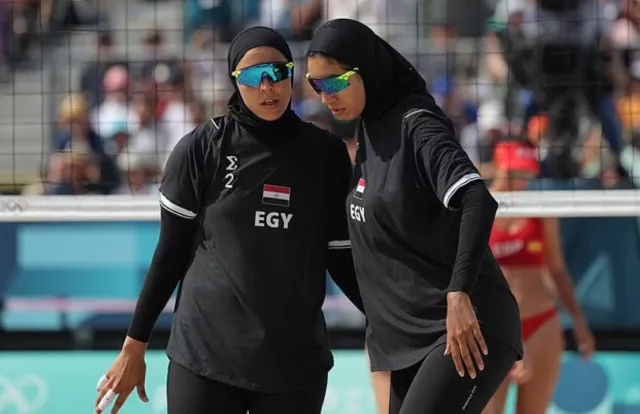
Amnesty International criticized the ban on hijab for French athletes
Amnesty International and other organizations have raised concerns about discrimination against Muslim women in sports because of strict clothing rules.
They are urging the International Olympic Committee to rethink these policies.
In a statement, they called it “discriminated against’.
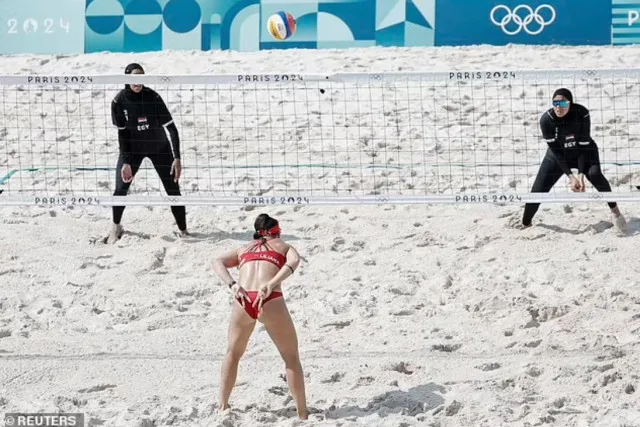
‘Women and girls in France who wear the hijab have been and are being prevented from playing multiple sports including football, basketball, judo, boxing, volleyball, and badminton
Even at youth and amateur levels,’ the letter said.
‘The hijab bans in sports have resulted in many Muslim athletes being discriminated against, invisibility, excluded and humiliated, causing trauma and social isolation,” they claimed.
How do Olympic’s fans reaction to French’s hijab ban?
The actions and statements of the Egyptian volleyball duo have sparked a range of reactions from the global sports community.
Many athletes and organizations have expressed support for Elghobashy and Meawad, praising their bravery and advocating for greater inclusivity in sports.
Supporters argue that athletes should have the freedom to choose their attire as long as it does not interfere with their performance or the rules of the sport.
They believe that the hijab ban is an unnecessary restriction that unfairly impacts Muslim women and contradicts the principles of equality and fairness that the Olympics stand for.
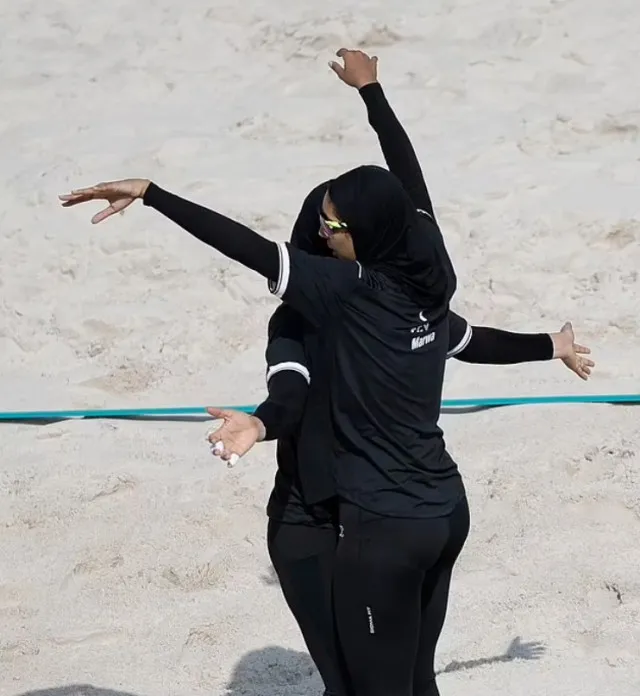
Conversely, some supporters of the hijab ban argue that it is necessary to maintain secularism and uniformity in sports.
They believe that allowing religious symbols, such as the hijab, could lead to divisions and conflict within teams and competitions.
If you believe in freedom as yall claim, that’s their free will to dress up and compete that way.
No one is forcing them to do so, stop being Islamophobic and let people live their own lives the way they want, one user said.
Some sports women wear hardly anything. If a Muslim woman chooses to do a physical sport covered up, then so be it.
They must just get so hot and sweaty tho, the third user commented.
The freedom to wear whatever one is pleased in should go both ways, so to judge others for wanting to be fully dressed is completely wrong‼️
Isn’t it oppression to force others to undress if they choose not to? Another explained.